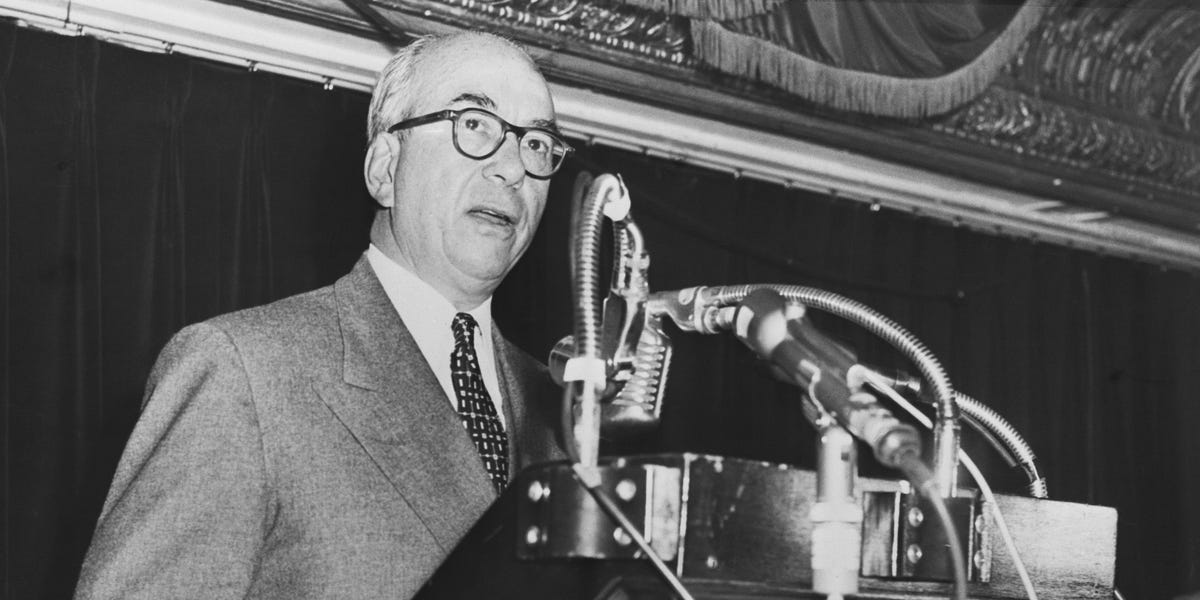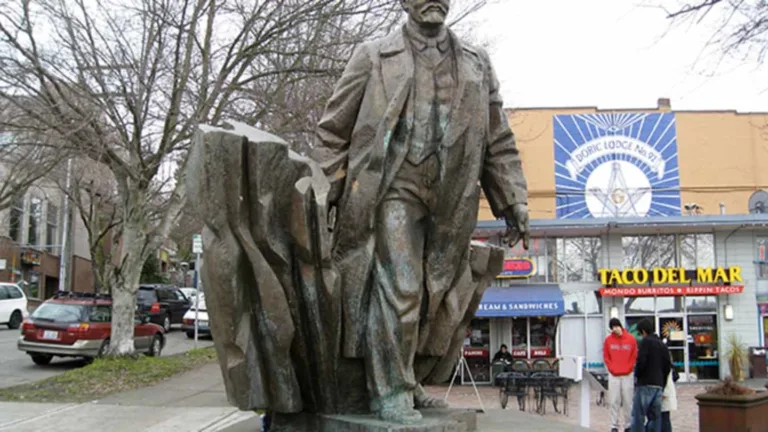The story of Lewis Strauss and J. Robert Oppenheimer is a fascinating tale of rivalry, ambition, and the complex world of nuclear politics in the early Cold War era. Both men were titans in their fields, yet their paths collided in a dramatic showdown that would forever alter Their Destinies.
Strauss, a powerful figure in The Atomic Energy Commission, held deeply conservative views on nuclear strategy and feared the potential for Uncontrolled Proliferation. Oppenheimer, on the other hand, was a brilliant physicist who had led The Manhattan Project, responsible for developing the atomic bomb. While initially hailed as a hero, Oppenheimer’s later advocacy for international control of nuclear weapons clashed with Strauss’s More Hawkish Stance. This fundamental disagreement laid the groundwork for a bitter feud that would culminate in a devastating attack on Oppenheimer’S Reputation.
Why did Strauss go after Oppenheimer? The answer lies in a complex web of personal animosity, Ideological Differences, and political maneuvering. Strauss saw Oppenheimer as a threat to his vision of nuclear power, and he was determined to bring Him Down.
Strauss and Oppenheimer: Clashing Ideologies
At the heart of their conflict lay a fundamental clash of ideologies. Strauss believed in a strong nuclear deterrent, advocating for an aggressive buildup of weapons to ensure America’s dominance on the world stage. He saw Oppenheimer’s calls for international control and disarmament as naive and dangerous, potentially weakening the United States’ position in the face of Soviet aggression.
Oppenheimer, haunted by the devastating power he Had Unleashed, advocated for a more cautious approach. He believed that unchecked nuclear proliferation posed an existential threat to humanity and urged for global cooperation to Prevent Catastrophic Consequences. This stark contrast in viewpoints fueled Their Animosity, creating an unbridgeable chasm between them.
Their differing perspectives on nuclear strategy weren’T Merely Academic Debates; they had profound implications for the future of the world. Why did Strauss go after Oppenheimer? Perhaps it was because he saw Oppenheimer’s ideas as a direct challenge to his own vision of American power and security.
The Atomic Energy Commission And Nuclear Policy
The Atomic Energy Commission (Aec) was established in 1946 to oversee the development and control of nuclear technology in The United States. It played a pivotal role in shaping American nuclear policy during The Cold War, navigating the treacherous waters between scientific advancement and national security concerns. At its helm stood Lewis Strauss, a fervent advocate for a strong nuclear deterrent who wielded considerable influence over the direction of atomic research and development.
Strauss’s appointment to the Aec marked a turning point in Oppenheimer’s relationship with the government. Oppenheimer had initially been welcomed as a leading voice in the nascent field of nuclear science. However, his later advocacy for international control and disarmament increasingly clashed with Strauss’s hawkish views on nuclear proliferation. This ideological divide created a tense atmosphere within the Aec, setting the stage for a bitter power struggle between these two influential figures.
The Aec became the battleground for Their Clashing Visions. Why did Strauss go after Oppenheimer? The answer lay in their competing philosophies on how to manage the immense power of the atom and its implications for global security.
 Notable Hispanic Americans: Shaping History This Month
Notable Hispanic Americans: Shaping History This MonthSurveillance and the Fbi’s Role
As Strauss’s animosity towards Oppenheimer grew, he began to use his influence within the Aec to orchestrate a campaign of surveillance against the physicist. He saw Oppenheimer’s past associations with leftist intellectuals and his advocacy for disarmament as potential Security Risks, feeding into the pervasive paranoia of The Cold War era.
Strauss leveraged his connections with J. Edgar Hoover, the powerful director of the Fbi, to launch a covert investigation into Oppenheimer’S Activities. The Fbi began to monitor his Phone Calls, Scrutinize His Personal Correspondence, and even tap into his private conversations. This relentless surveillance aimed to uncover any evidence that could be used to discredit Oppenheimer and justify stripping him of his security clearance.
This dark chapter in American history reveals the lengths to which Strauss was willing to go to silence His Ideological Opponents. Why did Strauss go after Oppenheimer? A combination of personal vendetta, Political Maneuvering, and the fear-mongering atmosphere of The Cold War fueled this campaign of intimidation and espionage.
The Security Hearing and Oppenheimer’s Downfall
In 1954, Strauss orchestrated a security hearing to strip Oppenheimer of his clearance. This highly publicized event became a National Spectacle, pitting the brilliant physicist against the powerful Aec chairman in a fierce battle for reputation and legacy. The hearing was a carefully orchestrated affair, with Strauss presenting a biased case against Oppenheimer based on flimsy evidence Gathered Through Illegal Surveillance.
Oppenheimer’s defense team struggled to counter the relentless accusations, facing an uphill battle against the formidable power of the government apparatus. Despite his eloquent testimony and unwavering Commitment To Truth, the damage had already been done. The public perception was swayed by Strauss’s skillful manipulation of events, painting Oppenheimer as a security risk and a traitor to his country.
The hearing ultimately resulted in Oppenheimer Losing His Security Clearance, effectively ending his career as a Leading Nuclear Scientist. Why did Strauss go after Oppenheimer? It was a calculated move to silence a dissenting voice, consolidate his own power within the Aec, and reshape the future of nuclear policy in America.
Legacy of a Nuclear Rivalry
The rivalry between Strauss and Oppenheimer left a lasting impact on the world of nuclear science and politics. Oppenheimer’s reputation was irreparably tarnished, his legacy forever overshadowed by the security hearing that stripped him of His Clearance. While he continued to work in academia and advocate for international arms control, he never regained his former prominence.
Strauss, on the other hand, went on to serve as a prominent figure in the nuclear establishment, shaping American policy for years to come. His victory over Oppenheimer served as a chilling reminder of the dangers of political manipulation and the suppression of dissenting voices, particularly during times of heightened national Security Concerns.
The story of their rivalry serves as a cautionary tale about the complexities of power, ideology, and the pursuit of scientific progress in the nuclear age. Why did Strauss go after Oppenheimer? The answer lies in a complex web of personal ambition, Political Maneuvering, and the fear-driven atmosphere of The Cold War era.










